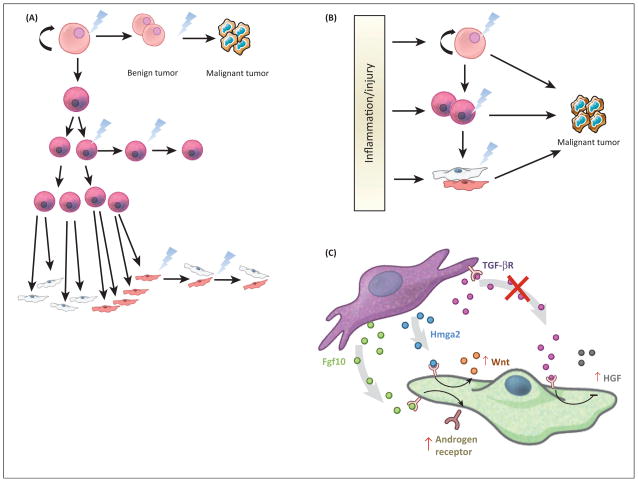Figure 2.
Tumor initiation scenarios and factors that can affect them. (A) Based on the existing literature, there are several scenarios by which tumor initiation could occur in the cell types of the stem cell hierarchy. Retrospective pathological studies have suggested that differentiated cells can initiate cancers, while prospective approaches to the study of cancer initiation using molecular genetics suggest that either stem or transit-amplifying cells are more relevant. (B) Data in various tissues proposes models whereby tumor initiation in unperturbed tissue follows scenario A. However, upon induction of dramatic changes to the microenvironment of tumor initiation, CCOs do not necessarily follow a typical stem cell hierarchy. There are several examples where terminally specified cells can dedifferentiate to create a cell that adopts stem cell properties and is thus able to become a CCO. (C) Changes to the signaling microenvironment can also affect tumor initiation. The same signaling pathways that are known to drive development of tissues are also implicated in tumor initiation and progression. For example, in the prostate, when stromal Tgfβ signaling is reduced, HGF is induced in the epithelium, leading to proliferation. In addition, upregulated expression of Fgf10 and Hmga2 in the meschyme can lead to increased androgen receptor signaling and Wnt signaling in the adjacent epithelium (respectively), again leading to abnormal epithelial proliferation. These cases are demonstrative of microenvironmental aberrations that can potentially enhance or induce epithelial cancer. CCO, cancer cell of origin; Fgf10, fibroblast growth factor 10; HGF, hepatocyte growth factor; Hmga2,

